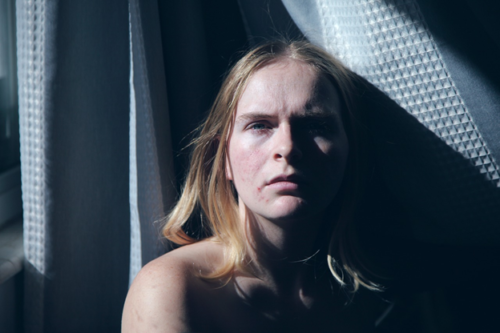 Image Source: Pixabay
Image Source: Pixabay
“Pull yourself up by your bootstraps.”
This is a saying our country is familiar with. It’s a mentality that built American society the way it is today. Unfortunately, it’s not the only problematic sentiment our society is familiar with either.
Our society is full of platitudes, bromides all too often used to gloss over and even to excuse the profound economic injustices that continue to plague our modern world. The stark reality is that many people commend America as the land of promise and plenty, yet millions of people are struggling with extreme poverty. Now not only are the impoverished paying the price with their physical health but with their mental health as well.
But what, exactly, is the connection between poverty and mental illness? And what can be done to break this devastating cycle?
The First Pandemic
Long before the outbreak of COVID-19 shattered the national and global economy, the US was plagued by another, more enduring, and more pervasive pandemic: the pandemic of poverty. According to a 2017 article published by the National Institutes of Health, an estimated 1.5 million families in America, including 16 million children, were living in deep or extreme poverty, which is typically defined as living on $2 or less per day.
But poverty is far more than just a social or economic problem, and its health effects extend far beyond the physical health impacts related to malnutrition or lack of adequate healthcare. The greatest health risks associated with poverty may not be physical at all.
Research increasingly suggests that, regardless of the physical toll associated with poverty, the mental toll is even greater. Worse, perhaps, is that these impacts may outlast any change in an individual’s or a family’s socioeconomic status.
Children who grow up in poor homes are at greater risk for adult-onset mental illness, for example, as well as for disruptive behavioral disorders (DHD) during childhood. These disorders, combined with persistent financial struggles, put these children at an increased risk of dropping out of school prematurely. By dropping out and discontinuing the opportunity for a furthered education, the cycle of poverty and mental illness only continues. As this cycle continues to spin, many people below the poverty line end up suffering from mental health issues due to the trauma they’ve experienced.
Poverty, Mental Illness, and Addiction
Studies increasingly show that poverty is linked both to behavioral disorders in children and to anxiety, depression, or post-traumatic stress disorders (PTSD) in adults and children alike. According to the National Survey of Drug Use and Health, more than 2.5 million adults living below the poverty line in the US have also suffered from some form of serious mental illness (SMI), including psychiatric, emotional, and/or behavioral disorders.
Studies indicate that the most prevalent of these disorders are substance use disorders (SUD). Those contending with the extreme and persistent financial stress may turn to substances to cope, leading to SUD in those who may be predisposed to addiction. This can be especially problematic for those that also suffer from homelessness.
Poverty as Mental Illness
The connection between mental illness and poverty is, perhaps, most apparent in the crisis of homelessness. Studies suggest that a significant proportion of the unhoused also suffer from undiagnosed or insufficiently treated mental illness.
The question remains, however, of whether homelessness is a symptom of mental illness or a cause. Indeed, for far too many years, homelessness, and poverty in general, has been pathologized. By viewing extreme poverty as a form or a manifestation of illness, we get to lay the “blame” on the supposed illness, and subsequently point the finger at those in whom the “illness” lies, as the source of the suffering.
In doing so, we individualize poverty and mental illness, rather than looking deeper. This pathologizing of poverty makes it easier to deflect from its true causes. To refuse to acknowledge the problem as a social one but as an individual one instead makes it easier to sustain the economic and social inequities that sustain the dividing lines between the haves and the have nots.
Although there is still far more work to be done to get at root causes, significant social support services do exist to help those facing food and housing insecurity establish a firmer financial footing. That includes not only financial aid but also vocational, employment, and education resources. In addition, mental health assistance has become more available to those under the poverty line.
Practicing Self-Care
As profound as the connection between mental illness and poverty may be, help is out there. If you are suffering from addiction, for example, you can access quality telehealth services, many of which are now covered by Medicare and Medicaid.
Likewise, if you are experiencing depression or anxiety, you can also access on-demand counseling and other free and low-cost mental health services over the phone and online. In addition to seeking quality healthcare, simply understanding your emotional triggers and creating a plan to manage them can help to prevent a mental health spiral, no matter what your financial situation may be.
The Takeaway
The connection between poverty and mental illness is a significant one. All too often, the two link in a vicious cycle that seems almost impossible to escape. The pandemic of poverty is both pervasive and systemic, but that does not mean that the poor are doomed to suffer both financially and psychologically. From housing and education support to mental healthcare and addiction counseling, help is available to help you break the chain.
PrintBeau Peters | Radio Free (2020-12-19T22:20:29+00:00) The Connection Between Poverty and Mental Illness. Retrieved from https://www.radiofree.org/2020/12/19/the-connection-between-poverty-and-mental-illness/
Please log in to upload a file.
There are no updates yet.
Click the Upload button above to add an update.